Filter by
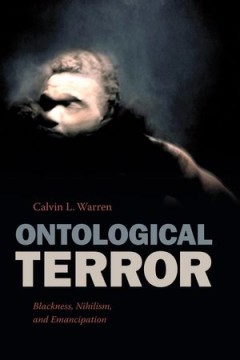
Ontological Terror
In Ontological Terror Calvin L. Warren intervenes in Afro-pessimism, Heideggerian metaphysics, and black humanist philosophy by positing that the "Negro question" is intimately imbricated with questions of Being. Warren uses the figure of the antebellum free black as a philosophical paradigm for thinking through the tensions between blackness and Being. He illustrates how blacks embody a metaph…
- Edition
- -
- ISBN/ISSN
- 9780822370727
- Collation
- -
- Series Title
- -
- Call Number
- -
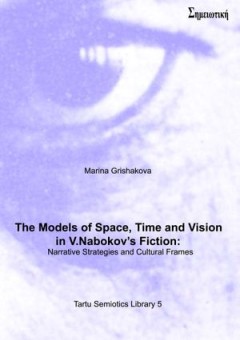
The Models of Space, Time and Vision in V. Nabokov’S Fiction: Narrative Str…
Marina Grishakova belongs to the younger generation scholars of the Tartu-Moscow school of semiotics. Her book is part of a semio-narratological tradition of a single author or a single work research that tackles issues of wider theoretical import: applicability of the concept of “modeling” in the humanities, theory of mimesis and the function of experimental literature in (post)modernist c…
- Edition
- -
- ISBN/ISSN
- 9789949320684
- Collation
- -
- Series Title
- -
- Call Number
- 791 GRI m
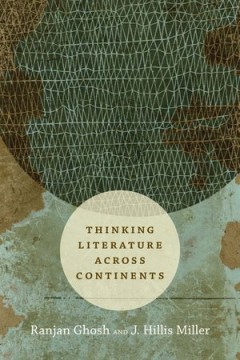
Thinking Literature across Continents
Thinking Literature across Continents finds Ranjan Ghosh and J. Hillis Miller— two thinkers from different continents, cultures, training, and critical perspectives— debating and reflecting upon what literature is and why it matters. Ghosh and Miller do not attempt to formulate a joint theory of literature; rather, they allow their different backgrounds and lively disagreements to stimulate…
- Edition
- -
- ISBN/ISSN
- 9780822361541
- Collation
- -
- Series Title
- -
- Call Number
- -
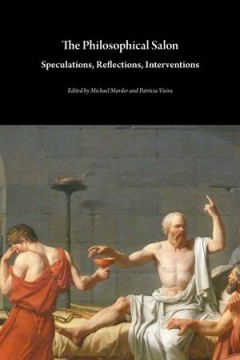
The Philosophical Salon: Speculations, Reflections, Interventions
Through the interpretative lens of today’s leading thinkers, The Philosophical Salon illuminates the persistent intellectual queries and the most disquieting concerns of our actuality. Across its three main divisions—Speculations, Reflections, and Interventions—the volume constructs a complex mirror, in which our age might be able to recognize itself with all its imperfections, shadowy sp…
- Edition
- -
- ISBN/ISSN
- 9781785420382
- Collation
- -
- Series Title
- -
- Call Number
- -
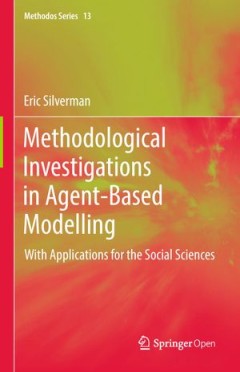
The Speed Handbook: Velocity, Pleasure, Modernism
Speed, the sensation one gets when driving fast, was described by Aldous Huxley as the single new pleasure invented by modernity. The Speed Handbook is a virtuoso exploration of Huxley’s claim. Enda Duffy shows how the experience of speed has always been political and how it has affected nearly all aspects of modern culture. Primarily a result of the mass-produced automobile, the experience o…
- Edition
- -
- ISBN/ISSN
- 9781478090748
- Collation
- -
- Series Title
- -
- Call Number
- -
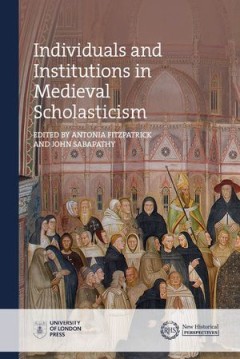
Proofs of Genius: Collected Editions From The American Revolution To The Digi…
Proofs of Genius: Collected Editions from the American Revolution to the Digital Age is the first extensive study of the collected edition as an editorial genre within American literary history. Unlike editions of an author’s “selected works” or thematic anthologies, which clearly indicate the presence of non-authorial editorial intervention, collected editions have typically been arrange…
- Edition
- -
- ISBN/ISSN
- 9780472900091
- Collation
- -
- Series Title
- -
- Call Number
- -
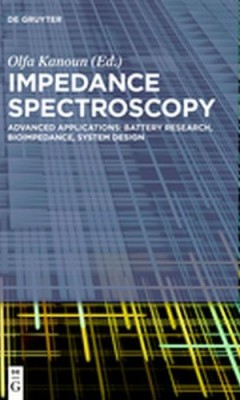
Promissory Notes: On the Literary Conditions of Debt
There is no doubt that the beginning of the twenty-first century was marked by crises of debt. Less well known is that literature played a historical role in defining and teaching debt to the public. Promissory Notes: On the Literary Conditions of Debt addresses how neoliberal finance has depended upon a historical linking of geopolitical inequality and financial representation that positions t…
- Edition
- -
- ISBN/ISSN
- 9781643150024
- Collation
- -
- Series Title
- -
- Call Number
- -
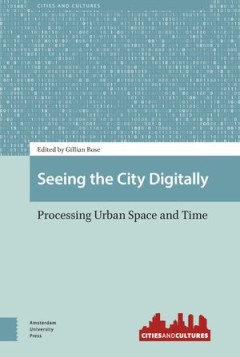
Powerful Prose: How Textual Features Impact Readers
What makes a reading experience »powerful«? This volume brings together literary scholars, linguists, and empirical researchers to elucidate the effects and reader responses to investigate just that. The thirteen contributions theorize this widely-used, but to date insufficiently studied notion, and provide insights into the therefore still mysterious-seeming power of literary fiction. The co…
- Edition
- -
- ISBN/ISSN
- 9783839458808
- Collation
- -
- Series Title
- -
- Call Number
- -
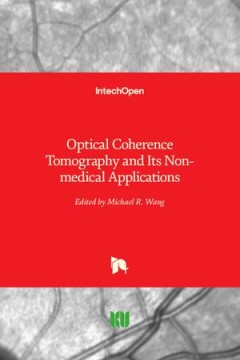
The Philosophical Salon: Speculations, Reflections, interventions
Through the interpretative lens of today’s leading thinkers, The Philosophical Salon illuminates the persistent intellectual queries and the most disquieting concerns of our actuality. Across its three main divisions—Speculations, Reflections, and Interventions—the volume constructs a complex mirror, in which our age might be able to recognize itself with all its imperfections, shadowy sp…
- Edition
- -
- ISBN/ISSN
- 9781785420382
- Collation
- -
- Series Title
- -
- Call Number
- -

Pataphilology: An Irreader
What do the bizzare etymologies of Jean-Pierre Brisset, made-up languages for literary fiction, The Dialectic of Enlightenment, Latin grammarians, Horace’s Epodes, and the Papyrus of Ani have in common? Absolutely nothing. Yet, taken together they provide an unusually coherent picture of a hitherto unacknowledged non-tradition of linguistic investigation. At these moments, particularly within…
- Edition
- -
- ISBN/ISSN
- 9781947447813
- Collation
- -
- Series Title
- -
- Call Number
- -
 Computer Science, Information & General Works
Computer Science, Information & General Works  Philosophy & Psychology
Philosophy & Psychology  Religion
Religion  Social Sciences
Social Sciences  Language
Language  Pure Science
Pure Science  Applied Sciences
Applied Sciences  Art & Recreation
Art & Recreation  Literature
Literature  History & Geography
History & Geography